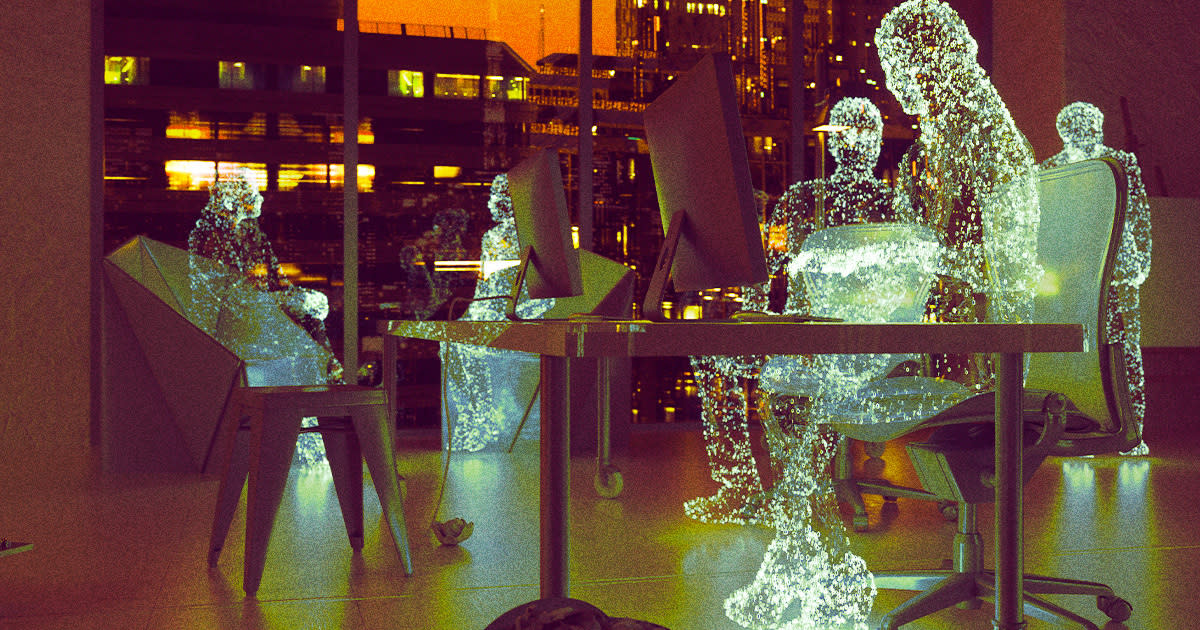Video Shows OpenAI Engineer Admitting It's "Deeply Unfair" to "Build AI and Take Everyone's Job Away"

Empty Suits
If there's one thing people fear about AI beyond a Terminator-style apocalypse, it's that the rise of these generative models — which were relentlessly trained on everyone's hard work without permission but with full impunity — is going to destroy their jobs.
The question of job destruction is one that OpenAI engineers were asked about in a resurfaced interview spotlighted this week by The Atlantic. The people building these AI models do acknowledge that what they're doing is "unfair." But if the attempt was to seem more ethically conscious, the effect only amplifies their callousness.
"It's kind of deeply unfair that, you know, a group of people can just build AI and take everyone's jobs away, and in some sense, there's nothing you can do to stop them right now," said Brian Wu, an engineer at the company, in the video.
It won't be all bad news, he suggests, because people will get to "think about what to do in a world where labor is obsolete."
But as he goes on, Wu sounds more and more unconvinced by his own words, as if he's already surrendered himself to the inevitability of this dystopian AI future.
"I don't know," he said. "Raise awareness, get governments to care, get other people to care." A long pause. "Yeah. Or join us and have one of the few remaining jobs. I don't know. It's rough."
AGI in the Sky
There may be some genuine contrition in Wu's faltering response. His colleague Daniel Kokotajlo, however, swoops in to confidently declare that the ends will justify the means once humans create an artificial general intelligence (AGI), an all-powerful AI that surpasses human cognition.
"To add to that," Kokotajlo said, "AGI is going to create tremendous wealth. And if that wealth is distributed — even if it's not equitably distributed, but the closer it is to equitable distribution, it's going to make everyone incredibly wealthy."
Of course, he concedes, there's "tremendous risks" if the AGI doesn't align itself with human interests. Yet, if we avoid those risks, "I think you won't need a job," Kokotajlo avers. "You'll be plenty happy."
These are astoundingly arrogant assumptions to make. But like how OpenAI CEO Sam Altman allegedly ignored Scarlett Johannson's opposition to her voice being used for a new version of ChatGPT, this behavior is emblematic of the haughty feeling of impunity that governs the AI industry.
That they'll create an artificial superintelligence is almost a foregone conclusion to them. And so they can casually brush off all this prattle about lost jobs and stolen artwork because what they're creating is one of the most important inventions in human history — so important, they seem to believe, that they never need to give any serious thought to the immense societal obstacles in the way of its supposedly utopian outcomes.
More on AI: African Workers Doing OpenAI's Training Say They're Being Subjected to "Modern Day Slavery"


